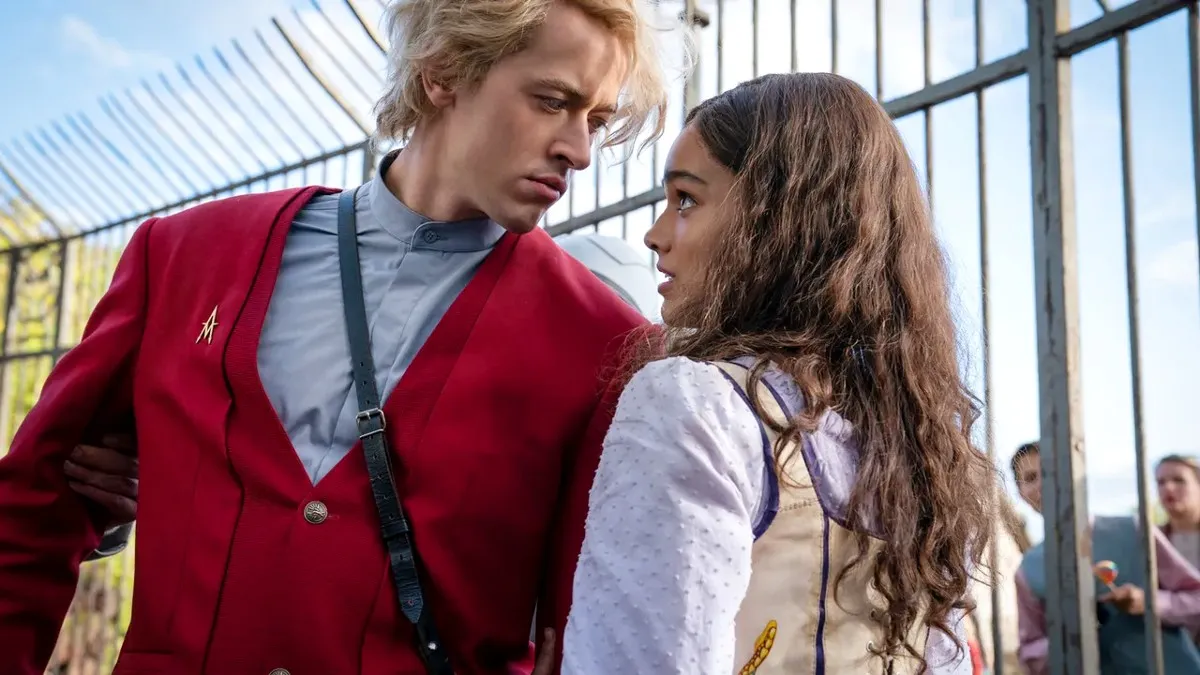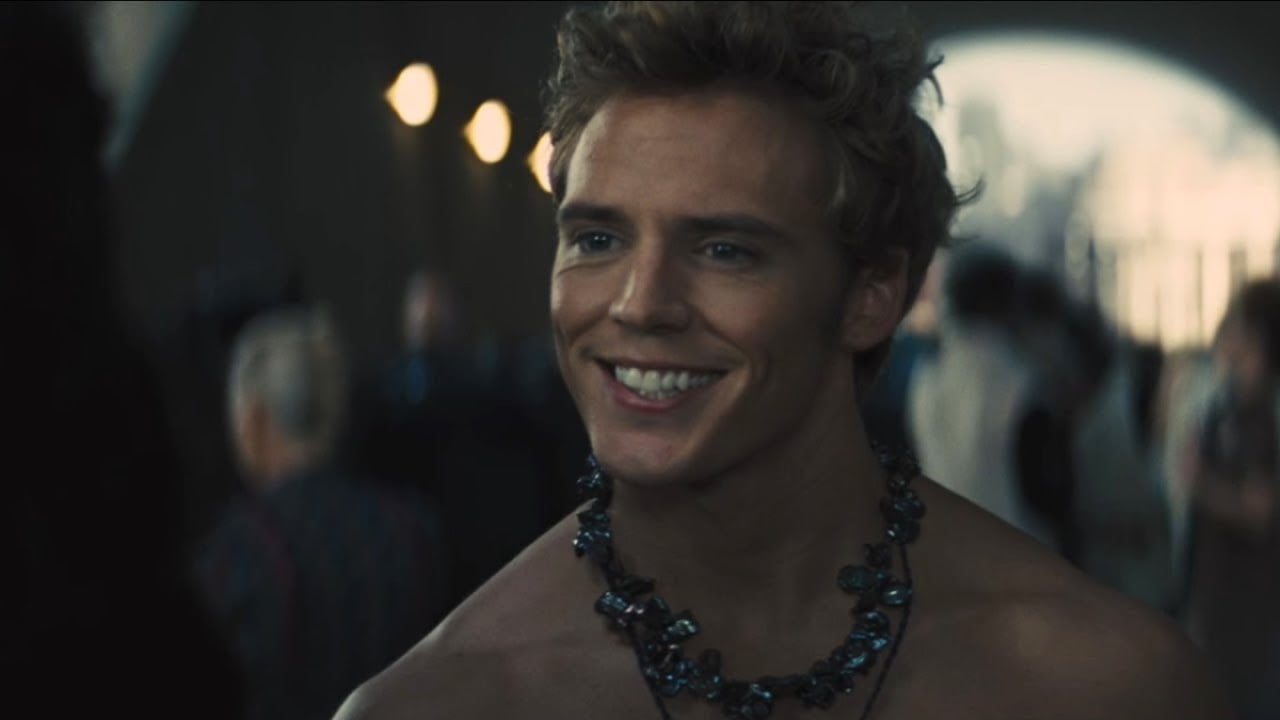The first official trailer for The Hunger Games: The Ballad of Songbirds and Snakes, the prequel to The Hunger Games’ very fortunate cinematic saga—an adaptation of the equally fortunate YA book series of the same name, incidentally still the absolute best to ever come out of the genre—dropped a few weeks ago, reigniting everyone’s interest in the nation of Panem and its brutal yearly contest.
The Ballad of Songbirds and Snakes is set more than sixty years before Katniss Everdeen volunteers to take the place of her little sister Prim in the 74th Hunger Games, barely a decade since the Dark Days that have led to the war between the Capitol and the District, the supposed annihilation of District 13, and the creation of the Games altogether.
The story takes place during the 10th Hunger Games, in which young people from the Capitol’s most prominent families are chosen to act as mentors to that year’s crop of tributes. Among those is the tribute from District 12, Lucy Gray Baird (played by Rachel Zegler in the movie), who will end up being paired up with a young Coriolanus Snow (played by Tim Blythe)—the very same whom we all know and hate from The Hunger Games.

So this prequel focuses on what are essentially two unknown characters—Lucy Gray is never mentioned by name in the Hunger Games saga, and President Snow is a much different person than Songbirds and Snakes’ Coryo, even though, of course, the seeds are already there.
This has led some fans of the saga to question why we should even care about them in the first place, and why we couldn’t have seen a story about the characters we already know and love—especially about how the other victors—like Finnick Odair, Johanna Mason, and Haymitch Abernathy—became victors in the first place.
And the answer is because that is so not the point of the Hunger Games series as a whole. Reading a story that details what exactly went down in the 65th Hunger Games and how Finnick came out on top would be immensely useless and also a massive disservice to the whole premise of Suzanne Collins’ novels.
We kind of already know what happened to the other victors
The first rebuke of this desire of seeing how the other victors won in their respective Games is that we already know. Most of the other victors’ backstories come up in Catching Fire, when they are all reaped for the Third Quarter Quell and Katniss and Peeta study the tapes of their Games to try to gain some insights into their strengths and weaknesses.
Katniss, of course, gives us the most details on how Haymitch survived the Second Quarter Quell, where the arena was filled with double the number of tributes. She describes the initial dangers he faced in the poisonous environment the Gamemakers had constructed, his alliance with Maysilee Donner, and his exploration of the force field at the very edge of the arena, which is what ultimately helped him defeat the tribute from District 1 and remain the last one standing.
Through Katniss, we know that Johanna chose to act like she was harmless and unthreatening throughout the entire reaping and training process of the 71st Hunger Games, waiting until the number of tributes in the arena had dwindled before revealing her ability for murder and taking care of the rest. We know that Finnick was extremely popular even before the start of his own Games and that he received what Katniss believed was the most expensive gift ever given to a tribute in the arena—a trident, with which Finnick had little trouble becoming the youngest victor ever crowned.

Katniss also tells us that Beetee won his Games by constructing an electric trap, that Annie survived her own Games thanks to her swimming skills, and that Enobaria famously ripped another tribute’s throat out with her teeth. Everything that is important for us to know about the other victors, Katniss tells us in a way that doesn’t downplay the brutality of any edition of the Games but also doesn’t indulge in the violence.
And that’s the other—and arguably most important—reason why a prequel containing the story of any of the other victors would simply not work within the narrative universe of The Hunger Games.
The Hunger Games saga has never been about aimless violence
While the Hunger Games obviously have a pivotal role within the larger world of the saga that is named after them, it’s never because of the “simple” act of the tributes killing each other until one remains. The violence is there for a purpose—to show the brutality of the Capitol, the disdain it has for the lives of the other citizens of Panem, and the complete disconnect that resides within the Capitol residents that allows them to see the tributes as figurines in a funny game they bet on rather than actual living human beings.
As we follow Katniss’ story, we see the years and years of Hunger Games as the reason the Districts are ultimately ready for a revolution. The only thing needed was a catalyst, the role that becomes Katniss’ the moment she suggests that she and Peeta should both die at the end of their Games rather than play into the hand the Gamemakers have dealt them. Katniss doesn’t plan to become the Mockingjay, but she does anyway, and her turning into the symbol of the revolution is what ultimately puts an end to the Hunger Games forever.
The reason Suzanne Collins chose to tell us the story of Lucy Gray Baird isn’t to simply show us a different edition of the Hunger Games—and I would argue that it’s not just to see the beginning of Coriolanus Snow’s transition from young Coryo to ruthless President Snow. It’s to explain how the Games turned from a relatively straightforward—but of course, brutal—punishment into a complicated spectacle complete with stylists, Victory Tours and parades.
Collins’ choice to set her prequel at this specific moment in the history of Panem very much has a meaning—while hypothetical prequels about the other victors don’t. We know what happened to them in the Games already, and we know the horrific consequences both they and their loved ones suffered. What would be the point in seeing these events that have already been explained? Aimless violence and gore with no real narrative purpose, exactly.
And from a meta-narrative point of view, that would very much make us Capitol citizens, who enjoy the spectacle of the Games, rather than set us on the side of the citizens of the Districts.
(featured image: Lionsgate)









Published: May 11, 2023 04:07 pm